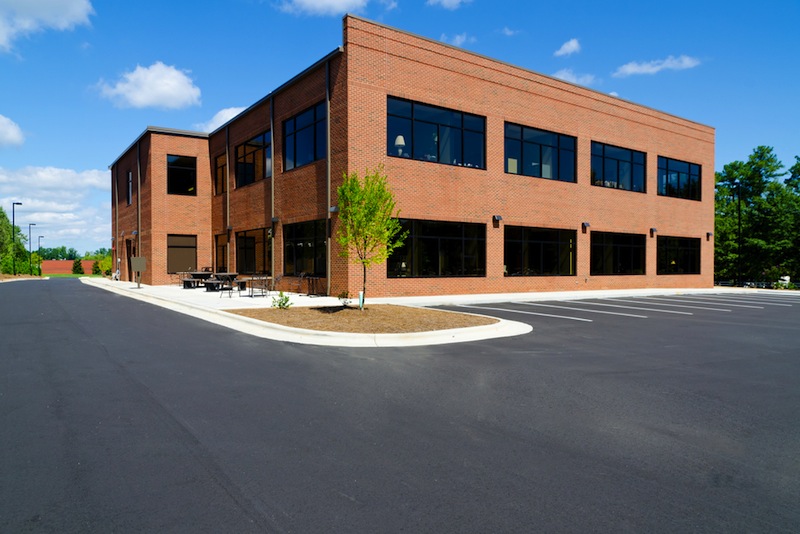Three Irish firms chart their journey from the early stages to the moments they realised their businesses had become successful.
Starting a new business is exciting, but alarmingly very few companies manage to survive the first three years.
ThinkBusiness spoke to three firms from Cork and Kerry that started small but managed to scale.
Supports for new businesses
Loughbeg Farm began selling homemade jams, chutneys, and ice cream at farmers’ markets before starting to make gluten free bread in 2014. Within a year, it was selling its gluten-free bread and tea bracks in over 100 SuperValus across Ireland, and subsequently appeared on RTÉs Dragon’s Den where it secured investments from Alison Cowzer and Eamon Quinn.
Company founder Walter Ryan-Purcell had previously worked in the industrial composting and renewable energy industries before finding himself unemployed. “There is so much help available to start-ups in Ireland,” he says. “I was able to get on the Back to Work Scheme, which allows you to keep your unemployment benefit while you are getting yourself off the ground, as well as grant aid for yourself and your employees.
“SuperValu’s Food Academy programme was also an incredible leg-up. Not only did we get excellent tuition from the retail experts, but it was wonderful to meet up with like-minded entrepreneurs.”
Overcoming challenges
Cork’s INTEGREAT was founded by Gerry O’Connor in 2011, providing joinery design and interior fit-outs to high-end contractors and designers. Having worked in the UK for eight years, Gerry went to work as a production manager in his native Cork with a joinery manufacturer, before the economic downturn cost him his job. Like Walter at Loughbeg Farm, Gerry decided to turn his unemployment into an opportunity to start a business.
Today his client list boasts some powerful UK brands including Selfridges and Sheraton Park Lane. However, it hasn’t always been easy for the budding entrepreneur. “Our business is service based and operating remotely, and we found the lack of adequate broadband to be a real threat to our success,” he explains.
“Following two frustrating years of slow speed broadband, a new provider to our area improved the service to a manageable level. Faster speed broadband is essential to our future development.”
Sub-standard IT infrastructure wasn’t the only barrier for the start-up, however; the economic climate at the time also presented challenges. “The decimation of the construction industry and the economic recession created its challenges. Potential clients were scarce. We had no marketing experience and often found it difficult to get our message across.”
Knowing you’ve made it
The transition from being a start-up to a successful business is a gradual process, but Gerry can pinpoint one moment in particular that was significant for INTEGREAT. “The key moment for us was in September 2013 when we were asked to head up the contractor’s design team on a high-end retail fit-out on Regent’s Street in London. It involved more time spent in the UK but had the added benefit of our brand being more visible and spreading our network of contacts. It resulted in more business.”
For Walter and Loughbeg Farm, the critical moment for his company came with a deal from SuperValu. “We suddenly went from supplying a handful of shops to providing every SuperValu in Cork and Kerry. Our turnover grew to over €5,000 per week. It all happened very quickly.”
Steady growth
For the founders of Cahersiveen’s K&T Bakery, there was no single crucial moment in the story of their business, but rather a constant trend of growth.
Owners Katarzyna and Tomasz Gwis emigrated from Poland to Ireland in 2006 and worked a variety of jobs until they found themselves out of work in 2014.
The couple had come from a rich tradition of bakery in Poland, and with time on their hands, they decided to start selling bread and cakes at car boot sales and country markets.
Sales were so good that they decided to open the K&T Bakery in Cahirsiveen and subsequently opened a restaurant and café in the town. “It’s hard to specify a particular moment when we realised the business had become a success,” says Katie, the former childcare assistant who now employs 15 people. “It was just a gradual process where we started to get a steady group of customers and were supplying our goods to shops in surrounding towns and villages. We just found ourselves getting busier and busier, and customers were coming back for more.”
What’s next?
The three businesses say they will stay focused on what opportunities come next.
For Loughbeg Farms, the future holds more sales and potential exports. “We plan to continue to build up sales steadily in all SuperValus here in Ireland and very shortly we intend to slice and freeze our bread for sale in the UK and elsewhere.”
For INTEGREAT, Gerry will keep his eye on new technology and how it can help grow his business. “3D modelling for drawings is something we are still skirting around the edges with. However, if we apply ourselves to build up the necessary skills, it would be an asset to how we produce drawings and allow us to offer this service for special projects at a premium rate.”
Finally for the K&T Bakery, Katie too hopes she can take her products to a wider market. “For now, we would like to stabilise the café and spread our delivery route wider,” she says. “We are taking each day as it comes.”
The three companies featured are 2016 regional winners of The Irish Local Development Network Enterprise Awards. Pictured above are: Katarzyna Gwis of K & T Bakery, (Kerry); Walter Ryan-Purcell of LoughBeg Farm (West Cork);and Gerry O’Connor of Intergreat (East Cork).
Article by Peter Flanagan.




